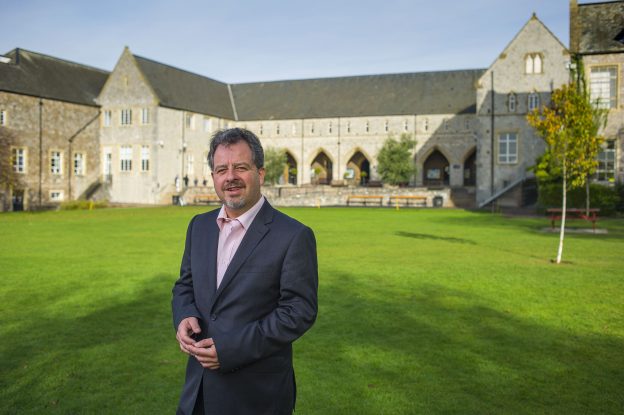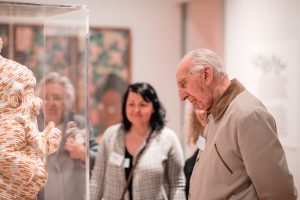By Professor Clive Ballard
First printed in Western Morning News, 24th May 2019.
A shocking statistic to ponder: older people living in care homes are typically taking between seven and ten different medications. That’s a heady cocktail of pills, prescribed to kill pain, to put people to sleep, to reduce symptoms such as agitation or psychosis. Yet we know that the drugs cause harm – particularly to people with dementia, a third of whom live in care homes in the UK. Thankfully, our research into antipsychotics has resulted in a halving of prescribing to this group, but our studies are now revealing that opioid-based painkillers and commonly-used class of sleeping pills called z drugs are similarly harmful, increasing risk of falls which results in higher disability and death rates.
To put it simply, sedating older people via whatever chemical means on a daily basis is likely to cause them harm, particularly if dementia is causing them to be disoriented in the first place. This so-called chemical cosh has to end. NHS England’s recent announcement that 200 pharmaceutical staff have been recruited to work with care homes to review prescribing is great news – but we must go even further. We owe it to the 800,000 people with dementia who are living in care to give them the best possible quality of life.
In our WHELD study, we worked with care homes to train carer champions to deliver person-centred care. That involves simple measures such as talking to residents about their interests and involving them in decisions around their own care.
When combined with just one hour a week of social interaction, the programme improved quality of life and reduced agitation and aggression in people with dementia. We’re also looking at ways of delivering the training as e-learning, meaning we can reach even more people to improve care.
Many care homes are excellent, but standards still vary hugely. We have previously found that the average person experiences just two minutes of social interaction in a six hour period. It’s hardly surprising when that has a knock-on effect on quality of life and agitation, which in turn often leads to more drugs being prescribed to try to reduce that behaviour.
Another huge challenge for care homes is overnight care. More than 40 per cent of residents experience sleep disturbance. It’s caused by a number of factors including restlessness and insomnia due to symptoms or medications, night time disturbances from staff or other residents and behavioural symptoms such as agitation. It can lead to problems in many aspects of their health and well-being, including increased problems with memory, higher risk of death and behavioural symptoms, as well as missed meals and chances to interact with others due to daytime napping.
Sleep disturbance is also a challenge for care staff, particularly due to low night staffing levels. Despite the importance of the issue few studies have examined the prevalence or full impact of sleep disturbance, and there is no evidence-based guidance available. All too often, sleeping pills are prescribed to try and encourage older people to stay in bed, but our body clocks are all different and older people need less sleep. It’s not realistic to drug them to fit in with the staffing regime of a care home, and our research shows an increase in fractures bones among residents who take the z-drug class of sleeping pills. In older people particularly, fractures can cause permanent disability and increase death rates.
We’re now working with care homes in Torbay and London to deliver a large-scale clinical trial. The NightCAP study, funded by Alzheimer’s Society, will work with GPs to improve prescribing practice to reduce unnecessary use of hypnotic drugs, and will provide training and support to care home staff to help them improve night-time care. Oir goal is to provide a training programme that could be rolled out in the same way as our WHELD programme for daytime care.
We were also involved in a Norwegian study that looked at how pain is treated in people with dementia. We confirmed that paracetamol is safe and effective, but that opiod-based painkillers carry a tripled risk of side effect such as personality changes, confusion and sedation, which can seriously impact people’s lives in dementia. This suggests that we need a different approach to pain treatment for people with dementia as well.
Overall, the research is clear – sedating people with dementia in the name of managing their symptoms is damaging their health. It’s worrying that people are being prescribed multiple layers of these damaging drugs. We have to improve care, training and awareness to turn this around. Older people with dementia are some of the most vulnerable in our society and we owe it to them to look after them better when they are most in need.


 An accumulation of small lifestyle factors can make a big difference in quality of life for people with dementia. On World Alzheimer’s Day,
An accumulation of small lifestyle factors can make a big difference in quality of life for people with dementia. On World Alzheimer’s Day,  Dr Byron Creese
Dr Byron Creese

